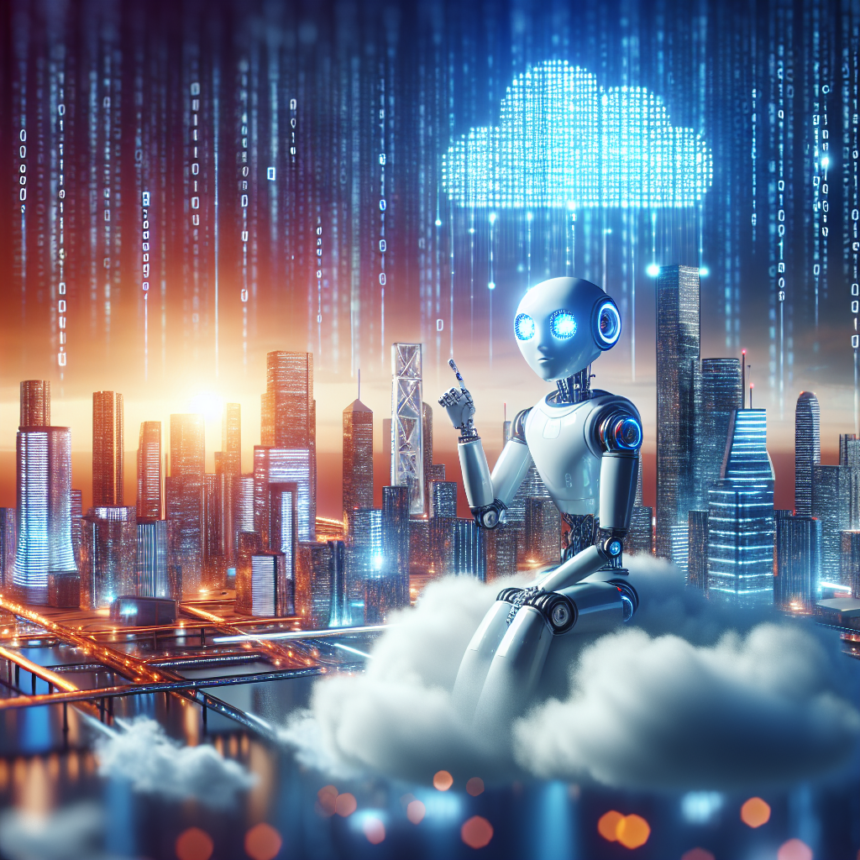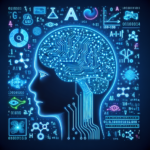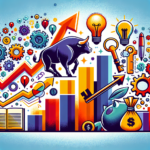Artificial Intelligence (AI) has evolved from a futuristic idea to a powerful tool that is transforming various industries around the globe. With recent advancements in machine learning, natural language processing, and computer vision, AI is not just enhancing existing processes but also creating entirely new business models. From healthcare to finance, transportation to retail, AI is at the forefront of innovation, driving efficiencies and improving outcomes. In this article, we will explore the latest breakthroughs in AI and their implications for various sectors.
Healthcare
In healthcare, AI is revolutionizing diagnosis and treatment. Machine learning algorithms are being trained on vast datasets of medical images, enabling radiologists to detect diseases such as cancer at stages much earlier than before. Breakthroughs in natural language processing have also allowed AI to analyze clinical notes and electronic health records, identifying patterns that can lead to better patient outcomes.
One significant innovation is the use of AI in drug discovery. Platforms like Atomwise use deep learning to predict how different compounds will work against certain diseases, accelerating the development of new medications. This not only reduces the time required for drug trials but also minimizes the costs involved. The implications for pharmaceutical companies and patients alike are profound, as potentially life-saving treatments can reach the market much faster.
Finance
The finance sector is experiencing a revolution thanks to AI’s ability to analyze large volumes of data quickly. Machine learning algorithms can detect fraudulent transactions in real-time, significantly reducing the financial losses that organizations face due to fraud. These algorithms learn from transaction histories and can identify unusual patterns that may indicate illegal activities.
Similarly, AI is enhancing risk assessment models, allowing banks to evaluate potential borrowers more accurately. By analyzing a myriad of data points—from credit scores to spending habits—AI systems can provide a more comprehensive picture of an individual’s creditworthiness, promoting greater financial inclusion.
Moreover, robo-advisors are emerging in wealth management, providing personalized investment advice based on clients’ risk profiles and goals. These AI-driven platforms have democratized access to financial planning and investment strategies, once available primarily to wealthy individuals.
Transportation
The transportation industry is witnessing transformative changes driven by AI, particularly through the development of autonomous vehicles. Companies like Waymo and Tesla are at the forefront of this technology, utilizing AI to process information from roadside sensors and cameras. This allows vehicles to navigate complex environments while making real-time decisions regarding speed, direction, and potential obstacles.
In public transportation, AI is optimizing route management and scheduling, enhancing the efficiency of service delivery. For instance, predictive analytics can forecast peak times, allowing transport operators to adjust services dynamically to meet demand. This results in a smoother commuter experience and reduces operational costs.
Retail
AI is also revolutionizing the retail sector by personalizing the shopping experience. Advanced algorithms analyze consumer behavior, preferences, and past purchases to curate tailored product recommendations. Personalized marketing strategies based on AI insights are proving to be highly effective in boosting customer engagement.
Additionally, AI-driven inventory management systems are enhancing supply chain efficiency. Retailers can now predict consumer trends more accurately, allowing them to stock the right products at the right times. This not only minimizes excess inventory costs but also reduces the risk of stockouts, ensuring customer satisfaction.
FAQs
What is the most significant breakthrough in AI to date?
While several breakthroughs have significantly impacted various industries, one of the most notable is the development of deep learning techniques, which have dramatically improved the capabilities of AI in image and speech recognition, natural language processing, and gaming. Technologies like OpenAI’s GPT-3 and DALL-E have pushed the boundaries of what is possible with AI-generated content.
How does AI improve efficiency in businesses?
AI improves efficiency by automating mundane tasks, enabling employees to focus on higher-value work. For example, AI algorithms can handle data analysis, customer inquiries, and even inventory management without human intervention, resulting in time and cost savings for organizations.
Are there ethical concerns related to AI?
Yes, ethical concerns surrounding AI are a hot topic. Issues such as data privacy, algorithmic bias, and the potential for job displacement require careful consideration. Companies developing AI technologies must prioritize transparency, accountability, and fairness to mitigate these risks.
Can small businesses benefit from AI?
Absolutely! AI technologies are increasingly accessible, with many tools available for small to mid-sized businesses. From chatbots for customer service to AI-powered marketing tools, small businesses can leverage AI to stay competitive and enhance their operations.
What is the future of AI in industries?
The future of AI in industries is promising, with ongoing research likely to yield even more transformative applications. As AI technologies continue to advance, we can expect further improvements in automation, personalization, and decision-making processes across various sectors, ultimately leading to innovative business models and improved consumer experiences.
In conclusion, AI is not merely a trend; it is a fundamental shift that is reshaping industries. By embracing these breakthroughs, organizations can stay competitive and adapt to the ever-evolving market landscape, paving the way for a future where AI plays an integral role in driving economic growth and improving quality of life. As AI technologies become more sophisticated, staying informed and adapting will be essential for businesses and consumers alike.











